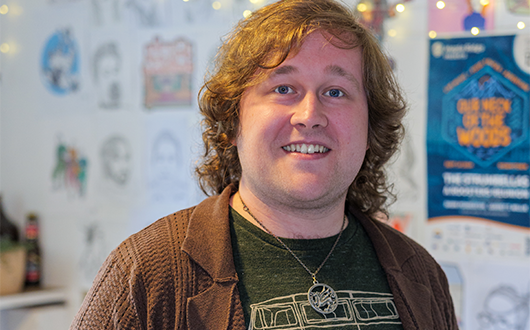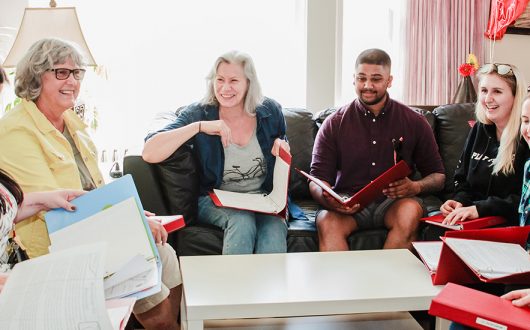Cultural Care for Indigenous Young People
“My name is Eugene Harry. Ancestor name, XiQuelem. And I’m from Malahat First Nation. I’m a Knowledge Keeper.”
Thanks to your support, Elder Eugene visits Indigenous young adults living at Pacific Coast Apartments (PCA) to offer cultural care, including smudging ceremonies. We are grateful to him for sharing his knowledge and experience with young people with severe addiction and mental health challenges.
He works closely with a social worker who supports people under 30 as they move into adult programming.
“Everyone has varying levels of functionality, varying levels of what they’re dealing with. A lot of people have addiction issues. Some people have mental health issues. Some people have a combination of those two things,” explain a Coast team member.
Providing Trauma-Informed Care Through Cultural Counseling
Out of the 20 young adults living at PCA, many are Indigenous. Your gifts ensure Coast provides trauma-informed, culturally appropriate support for those who want it. But participation is always optional.
Elder Eugene describes why this approach is so meaningful:
“I like it here because they ask. It’s not me deciding who I’m going to visit, it’s them who say, ‘Oh, I’d like to see him.’ That’s the beautiful part.”
Healing Through Tears, Spirituality, and Connection
Elder Eugene’s approach is rooted in offering comfort and spirituality. He shares, “I’ll ask a higher power to fill me up with that goodness so I can help ease this person’s mind. To open the door and let the goodness come in, and push aside whatever is heavy, the darkness.”
Having himself survived residential schooling and many traumas, he is well placed to offer young Indigenous folks experiencing many traumas themselves the support they need.
He values the moments when people allow themselves to feel their emotions:
“I really, really like people who cry, you know, because tears let out a lot of stuff. And then when their tears come in, I say, taste it. I like it when they say, ‘I’m angry.’ See, there’s healing there. Spit it out now. Discomfort is a door opening for healing.”
Helping Young Adults Reconnect With Themselves
We’ve seen the impact of Eugene’s visits firsthand.
“Sometimes the young adults who live here experience trauma so often they think it’s normal to feel that way all the time. When Eugene talks to them, it’s like they get grounded. They start to remember they didn’t always feel trauma.” explains Program Manager Emily Grant.
She reflects on specific young adults who have connected with Eugene.
“There were a couple of clients I was really hoping Eugene would reach, and it’s been really positive. When that connection happens, it’s always a great moment.”
Thank you for giving these young people access to trauma-informed and culturally appropriate care.


